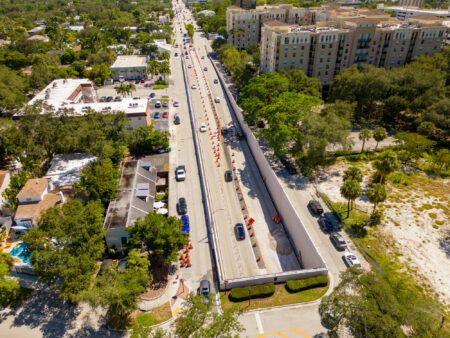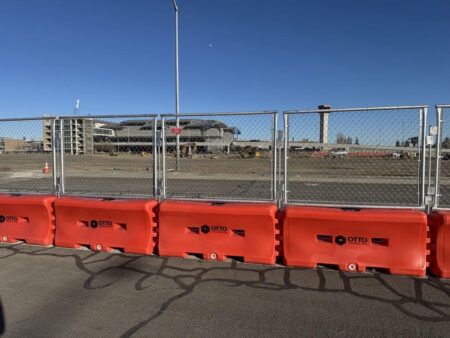‘Through traffic’ could be banned in Birmingham city centre as part of ‘four big moves’ put forward by its local government to address air quality issues in the Midlands city.
Introducing variable parking prices and restrictions to manage car use and rolling out reduced speed limits in residential areas are a number of other measures proposed by Birmingham City Council.
Should the Birmingham Transport Plan 2031, published by the Labour-run council, go ahead all private vehicles would be prohibited from using the city centre as a short cut to reach their intended destination while even access to the area by motorized transport would be severely curtailed.
Recommendations under consideration suggest pedestrianizing much of the city’s central road network to encourage walking and cycling and re-routing the A38 to an upgraded ring road.
Another proposal would see a maximum speed limit enacted on all residential roads throughout the city, while parking would be used to help manage demand for car travel through availability, pricing and restrictions.
According to research, currently between 15-30% of land in England’s largest cities, including Birmingham, is taken up by parking with the average UK car sitting unused for 96% of time. The council intends to free up some of the space given to parking services in the city, giving priority to public transport and other uses.
“Good transport is the most important ingredient in ensuring that the benefits of Birmingham’s growth are felt in every part of the city”, said Councillor Waseem Zaffar MBE, cabinet member for transport and the environment at Birmingham City Council.
“Transport is key to opening up job and training opportunities, to providing access for all to essential services including health and education and to supporting individual self-development and fulfilment. In this way, transport is much more than a means of getting us to where we want to go each day, it can be an enabler transformational changes. To unlock the potential of transport, we need to fundamentally change the way people and goods move around the city.”
The Freight Transport Association (FTA). policy manager for the Midlands at the organisation, Chris Yarsley, said, “As the business organisation representing the UK logistics sector, FTA is calling on Birmingham City Council to reconsider its plans to impose restrictions upon freight vehicles entering the city during the daytime. While some goods can shift from being delivered in the day to the night-time, most are dependent on when the goods are ready or when customers are available to receive them – for example, fresh goods for sale that day and ‘just in time’ deliveries to meet urgent needs.
“However, it is encouraging to note that Birmingham City Council has acknowledged the vital role the logistics sector plays in ensuring the city centre remains an attractive place for people to live, work and visit. None of this would be possible without commercial vehicles having access to the city to supply the offices, shops, schools, medical and leisure facilities that residents demand and use. FTA supports the Council’s aim to reduce the volume of private cars in the city; the proposals will ensure that the vehicles that truly must have access to the city – including many freight vehicles – benefit from more reliable and sustainable journeys.”
“FTA remains sceptical of the Council’s decision to encourage businesses to increase their use of e-cargo bikes for last mile deliveries. The reality is that one medium sized lorry – driven by one driver – can do the work of 100 e-cargo bikes. In the opinion of our members, this proposal does not provide the most effective way to reduce pollution and congestion in the city centre. FTA is also sceptical of the role a consolidation centre could play in reducing the number of commercial vehicles entering the city centre, given the varied nature of goods that are required within Birmingham and the unique needs of each business served.”
The proposals are subject to cabinet approval on the 21 January.





